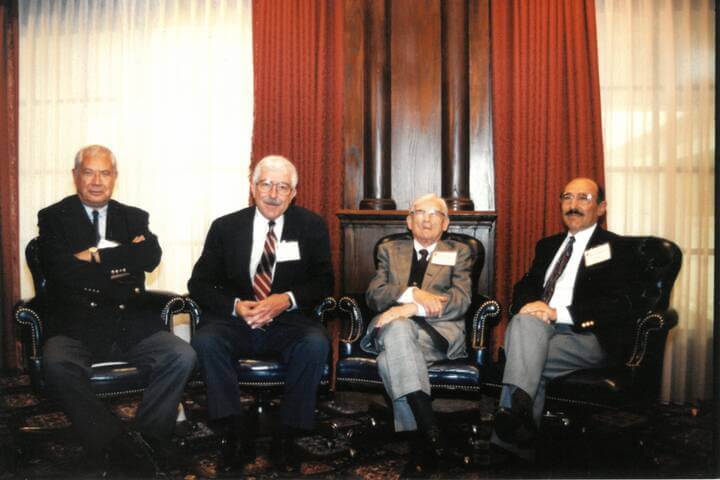Sleep research pioneer Michel Jouvet died on the night of Oct. 2 to 3 at the age of 91 years, according to obituaries published in La Croix and Ouest-France.
In the late 1950s, Jouvet’s neurological research on cats led to an unexpected discovery. “It was then that, by serendipity, we observed a phenomenon which surprised us very much,” he wrote in a retrospective article published in 2001. He found that muscle activity is inhibited during rapid eye movement (REM) sleep, a state which he called “paradoxical sleep.”
His seminal paper, “Sur un stade d’activité électrique cérébrale rapide au cours du sommeil physiologique,” was published in 1959. Jouvet was the longtime head of a laboratory in Lyon for the French national research institution INSERM (Institut national de la santé et de la recherche médicale). He received the Distinguished Scientist Award from the Sleep Research Society in 1990, and in 1994 he published the review, “Paradoxical sleep mechanisms,” in the journal Sleep.
Jouvet’s research also laid the groundwork for the identification of REM sleep behavior disorder, and it led him to become fascinated with the function and meaning of dreams. His books include, “The Paradox of Sleep: The Story of Dreaming,” and the novel, “The Castle of Dreams.”
In Nashville in 1995, Jouvet joined contemporary sleep research pioneers Nathaniel Kleitman, Eugene Aserinsky, and William Dement at the ninth annual meeting of the Associated Professional Sleep Societies (APSS) for a celebration of Kleitman’s 100th birthday. In Chicago in 2003, Jouvet and Dement delivered the keynote addresses at the 17th annual meeting of the APSS, which celebrated the 50th anniversary of the 1953 discovery of REM sleep.
Read AASM memorial tributes to other sleep medicine leaders.
Updated April 5, 2025

Sleep research pioneers Michel Jouvet, William Dement, Nathaniel Kleitman and Eugene Aserinsky in 1995




